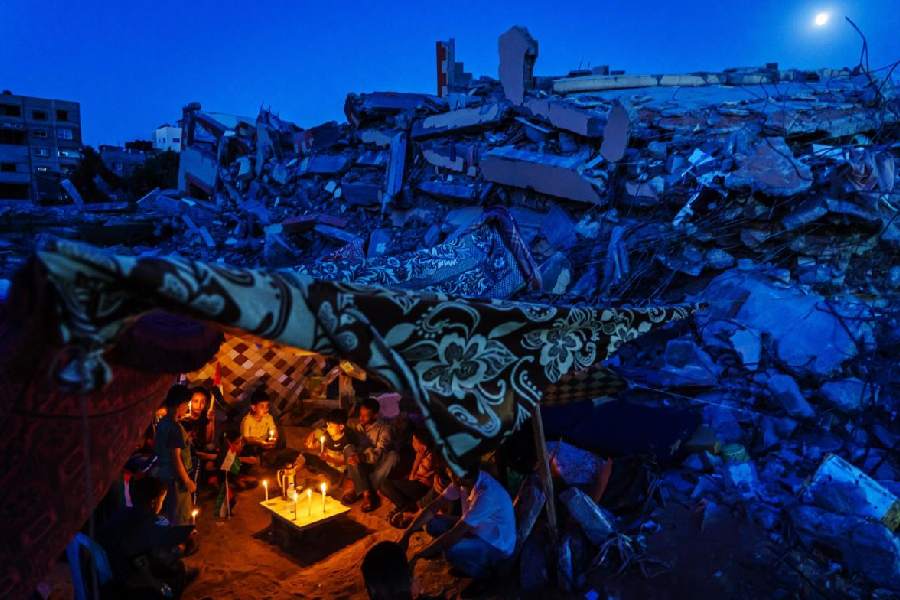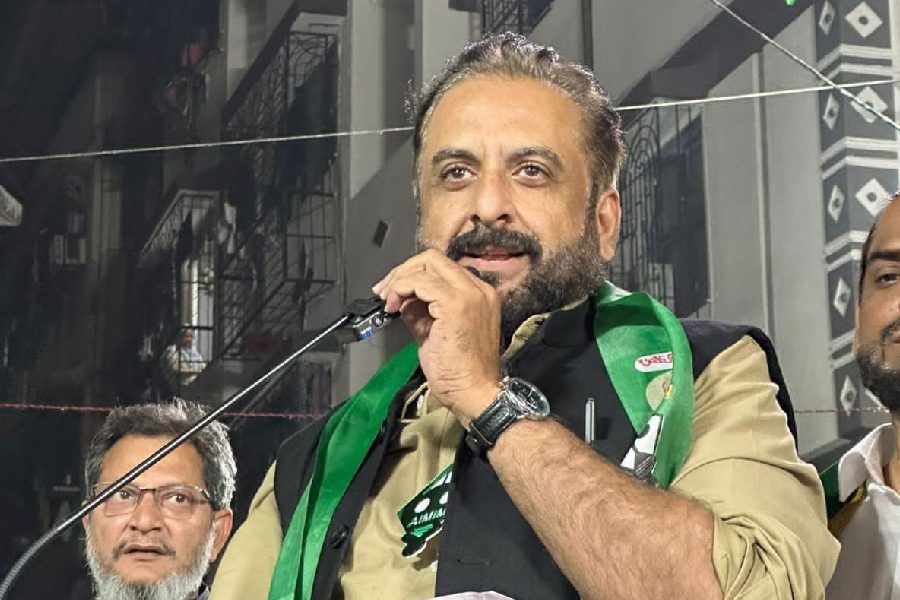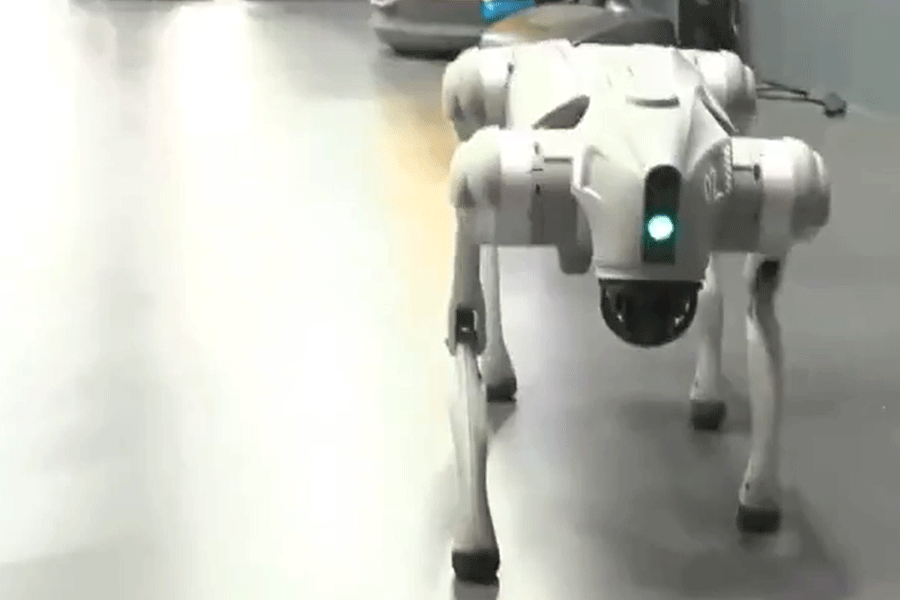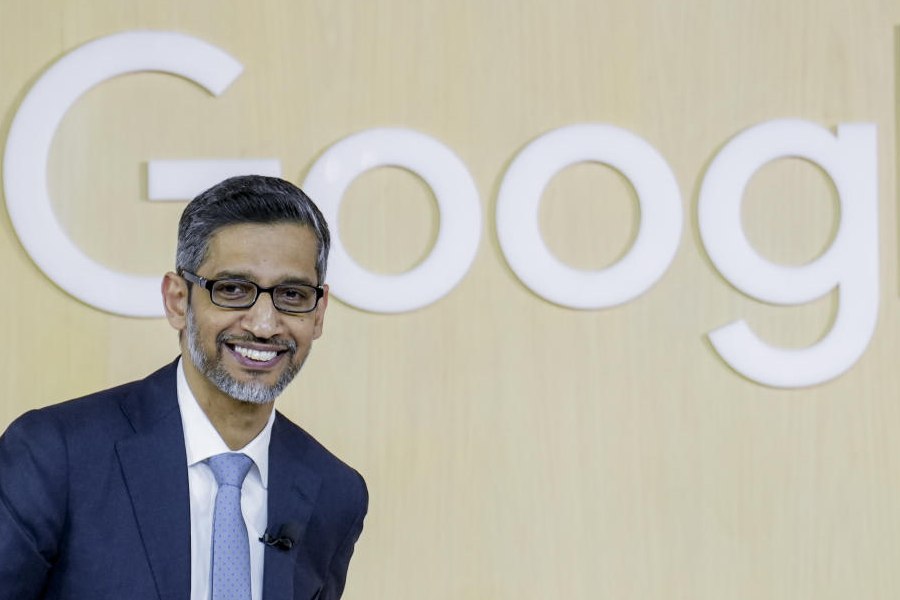The war between Russia and Ukraine — it started in 2014 — is now over a decade old. In September 2022, Russia’s ministry of defence put it out that 5,937 Russian soldiers had been killed in combat. And by mid-December 2024, Russia said Ukrainian military casualties amounted to almost 1,000,000 killed and wounded. These figures do not include civilian casualties. The total number has to be staggering. The world wants that war to end. Do Russia and Ukraine want the war to end? Yes, but on their terms. The ‘world’, if asked to say what that war is now really about, will scratch its pate for a precise answer.
One hundred and seventy years ago, a bitter and bloody war mutilated the same part of Europe’s east. The Crimean War, fought from 1853 to 1856 in the region of that name, between Russia on one side and the Ottoman Empire on the other, bears a somewhat unbelievable likeness to the war now on, involving Russia and Ukraine. If the world back then and the world now were asked to say what that war was about, they would have reacted with the same befuddlement. For the record, that war was started by Russia on the ostensible ground that Orthodox Christians (as most Russians were) in the Ottoman Empire faced persecution. France, the United Kingdom, and Sardinia-Piedmont quickly allied with the Ottoman side, so as to keep Russian aspirations for turf and influence in the region in check. Ukraine was then part of the Russian Empire and was sucked into the Crimean War by default, as it were, on behalf of and as a front for Russia. The hardship that Ukrainian landowners and peasants had to undergo, as subjects of Czar Nicholas forced into battle, led to a burgeoning of Ukrainian nationalist sentiment, with some Ukrainians wanting to invite Western intervention to support their cause. The syndrome is all-too-familiar. Ukraine was in the Crimean War but was its heart in it? The question is moot.
What is not in doubt is the figure of the battle-dead. Wikipedia tells us: “The European states, Russia, France and Britain suffered the greatest losses... 95,615 dead on the part of France, 22,182 on the part of Britain and 2,166 dead Italians, Turkish losses ranged from 45,400 dead to 400,000. Data on losses among Russians also vary greatly. The minimum death toll is 73,125 dead, rising to 522,000.”
Alfred Lord Tennyson (1809-1892), in his celebrated poem on this war, “The Charge of the Light Brigade”, put its famous futility immortally —
“Forward, the Light Brigade!
Was there a man dismayed?
Not though the soldier knew
Someone had blundered.
Theirs not to make reply,
Theirs not to reason why,
Theirs but to do and die.
Into the valley of Death
Rode the six hundred.
Tennyson was a sensitive observer from the English side. A younger contemporary of his, an extraordinary combatant who, despite having been wounded, and nearly killed in that very war, was to write about it from the Russian side. I refer to Count Leo Tolstoy (1828-1910). The future author of War and Peace (1869) and Anna Karenina (1877), beside dozens of works, wrote about the bombardment of Sevastopol (then, as now, claimed and controlled by Russia and claimed but lost by Ukraine) on October 17, 1854 , immediately after the attack.
In his Preface to “Sevastopol and Other Stories” (1903), Tolstoy writes about “a lad fresh from Cadets College who finds himself in Sevastopol”: “‘The commander simply says… Go and let yourself be killed!’ Pretending it is all the same to him… he goes to the place where men are killed and hopes it is only said they are killed there… but half an hour at the bastion is enough to show that the reality is more terrible and more unbearable… He sees a man… blooming with health. Suddenly something splashes and he tumbles over into a heap of excrement… It is awful. It will not do to look at it or to think about it. But it is impossible not to think… How is it? Why is it?”
A great part of the world is at war today, and though World War III has not been declared as such, many commentators have said the war situation today recalls the anatomy of a world war. Beyond Russia and Ukraine, fiery contestations between Palestine-Gaza and Israel paint the news red each day. The ferocious attacks on Iran by Israel, now paused by a fragile ceasefire, and the four tense days that took India and Pakistan through air-strikes and counter-attacks, with a very real prospect of the ballistics escalating into a ‘full-fledged war’, require us to reflect on the subject of war, soldiers killing and getting killed, innocent civilians, with children among them, getting slain for no reason other than that they were where wars were. That the nuclear plume hangs menacingly over the scene is a fact none can wish away.
Are we, gripped by news of the wars, thinking beyond the wars, about war itself? Tennyson was 45 at the time of the Crimean War, Tolstoy 27. Are poets or would-be poets in their forties, and soldiers and would-be soldiers in their teens and early twenties, today thinking about war as Tennyson and Tolstoy thought? What would be the thoughts on war of their counterparts in Russia, Ukraine, India, Pakistan, Iran, Palestine-Gaza and in Israel today? And, likewise, among their counterparts in the United States of America, Europe and in much of the Islamic world? I do not doubt that the vein throbbing most vigorously in that age group as indeed in the adult population in all those lands would be of patriotic indignation, of an urge to teach ‘them’ a lesson they will not ever forget. As one who felt exactly that, after the Pahalgam outrage, I know and respect that pulse, and am one with it.
Wars that have to be fought have to be fought but is that process not meant to reach quietus at some point? There is no standard operating procedure that lays down that ‘point’. It can only be sensed or seen by the leader intuitively. And that point often intersects with ego, with pride both subjective and national. Hard as it is to declare war, it can be harder to declare peace. And brave is the leader who knows when to do both, with faith in the integrity of his or her decision. India’s defence minister said the other day what befits a defence minister and sounded perfectly appropriate, coming from one in his position. He said, “Peace time is nothing but an illusion... we must be prepared for uncertainty.” He could not have said, “Wartimes are an illusion, we must work single-mindedly for peace.” What is dutiful in a defence minister does not necessarily accord with the world’s civilisational ethos. And it is that ethos which led India to agree to a ceasefire when it was sought by Pakistan, and Israel and Iran to agree to pause operations. India is right in asserting that it has only paused its action and will resume it if terrorism torments India again. But by showing it knows how and when to start and how and when to stop military action, it has shown that war and war-mongering are not its essential soul, peace is, good neighbourliness is. Wars are sometimes forced on nations, love of war should never be.
I learnt only the other day of a Swahili word from an African student in my class: utu. It refers to the quality of being human, guiding human relationships and ethics.
Our soldiers are made of essences far greater than any gold. They are ready to place their strength and their skills, their passion and their prime, at the service of the nation. We salute them. Their precious presence must be cherished, not squandered.
And we honour with words too inadequate those many, too many to be counted, too precious to be regarded as a number, who have laid down their lives for the sake of their nations and their causes. They have made the word heroic mean what it means. Their sacrifices have a message for us.
Tennyson and Tolstoy and that Swahili word of ineffable power say to all the leaders of the nations now scorched and scorching in wars that they must heed the ‘point’ where enough is called enough. In the name of wars that must be fought for truth and for the nation’s honour, they must see the point from where a return to life without killing and getting killed is still possible.
“This is not the time for war,” our prime minister said to Russia’s president, Vladimir Putin, two years ago. There is a verity to that statement that goes beyond the context in which it was said.










